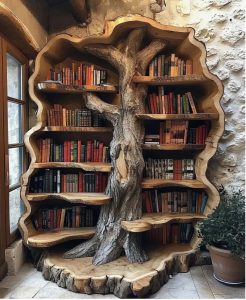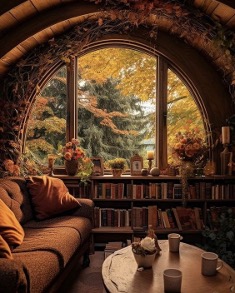Recommended Reads
 Geraldine Brooks. March. New York: Penguin Books, 2006.
Geraldine Brooks. March. New York: Penguin Books, 2006.
Caleb Carr. The Alienist. New York: Random House, 2006.
Willa Cather. Death Comes for the Archbishop. New York: Vintage Books, 1927/1971.
Miguel Cervantes. Don Quixote, translation by Edith Grossman. New York: Harper Collins Publishers, 2003.
Wilkie Collins. The Woman in White. New York: Simon & Brown, 1860/2011.
Michael Cox. The Meaning of Night. New York: W.W. Norton, 2006.
Patrick deWitt. The Sisters Brothers. New York: Ecco, 2011.
E.L. Doctorow. The March. New York: Random House, 2005.
Ivan Doig. Last Bus to Wisdom. New York: Riverhead Books, 2015.
Emma Donoghue. Slammerkin. Boston, MA: Mariner Books, 2002.
Michel Faber. The Crimson Petal and the White. Fort Washington, PA: Harvest Books, 2003.
John Gardner. Grendel. New York: Vintage Books, 1971/1989.
Elizabeth Gilbert. The Signature of All Things. New York: Penguin Group, 2013.
Graham Greene. The End of the Affair. New York: Penguin Books, 1951/1999.
Sheri Holman. The Dress Lodger. New York: Atlantic Monthly Press, 2000.
Barbara Kingsolver. The Poisonwood Bible. New York: Harper Perennial, 1999.
Nicole Krauss. The History of Love. New York: W.W. Norton, 2005.
Erik Larson. The Devil in the White City. New York: Vintage Books, 2003.
Ariel Lawhon. Code Name Hélène. New York: Doubleday, 2020.
David Liss. A Conspiracy of Paper. New York: Ballantine Books, 2001.
Ian McEwan. Atonement. New York: Anchor Books, 2001.
Sandor Marai. Embers. New York: Vintage Books, 2001 (translation).
Valerie Martin. Property. New York: Vintage Books, 2003.
Steven Millhauser. Martin Dressler: The Tale of an American Dreamer. New York: Vintage Books, 1997.
Sena Jeter Naslund. Ahab’s Wife or, the Star-Gazer. New York: Harper, 2000.
Alix Nathan. The Warlow Experiment. Anchor Books, 2019.
Joyce Carol Oates. Blonde. New York: Harper Perennial, 2001.
Maggie O'Farrell. Hamnet. New York: Knopf, 2020.
Charles Portis. True Grit. Woodstock, NY: The Overlook Press, 1968/2007.
Marilynne Robinson. Housekeeping. New York: Picador, 1980.
M. L. Stedman. The Light Between Oceans. Scribner, 2012.
Wallace Stegner. Angle of Repose. New York: Penguin, 1971/1992.
Darin Strauss. Chang and Eng. New York: Plume, 2001.
Italo Svevo. Zeno’s Conscience. translation by William Weaver. New York: Knopf, 2001/1923.
Graham Swift. Mothering Sunday. New York: Knopf, 2016.
Amor Towles. A Gentleman in Moscow. New York: Penguin Random House, 2016.
Barry Unsworth. Sacred Hunger. New York: W.W. Norton, 1993.
John Updike. Gertrude and Claudius. New York: Ballantine Books, 2001.
Sarah Waters. Fingersmith. New York: Riverhead Books, 2002.
Edith Wharton. The Age of Innocence. New York: Collier Books, 1920/1986.
Edmund White. Fanny. New York: Ecco, 2004.
Alice Winn. In Memoriam. New York: Knopf, 2023.
My Favorite Books on Creative Writing
 Dorothea Brande. Becoming a Writer. New York: J.P. Tarcher, 1934.
Dorothea Brande. Becoming a Writer. New York: J.P. Tarcher, 1934.
Out of print for many years, Becoming a Writer was rediscovered and reissued in 1981, with a foreword by John Gardner. This little book provides fine instruction on how to get into a writing groove. Brande addresses the process of writing in a studied manner, offering excellent tips on habits of thought and action to facilitate creativity and discipline.
Renni Browne & Dave King. Self-Editing for Fiction Writers: How to Edit Yourself Into Print, 2nd edition. New York: HarperCollins, 2004.
The authors of this guide have extensive experience editing fiction, and it shows in their sophisticated approach to many facets of the craft. Recommended for fiction writers hoping to polish up that second...or fifth draft before submission.
Janet Burroway with Elizabeth Stuckey-French and Ned Stuckey-French. Writing Fiction: A Guide to the Narrative Craft, 10th edition. Chicago: University of Chicago Press, 2019.
Yes, this is a textbook—and a comprehensive one at that, covering everything from characterization to plot to theme. Each chapter concludes with a list of recommended readings. It's a master class in creative writing!
Roy Peter Clark. The Art of X-Ray Reading: How the Secrets of 25 Great Works of Literature Will Improve Your Writing. New York: Little, Brown & Spark, 2017.
This book by teacher and writer Roy Peter Clark provides careful analysis of several great works, ending each chapter with take-away lessons you can apply to your own writing.
Annie Dillard. The Writing Life. New York: Harper Perennial, 1987.
Annie Dillard’s meditation on writing is an inspiring read, full of wisdom and metaphor.
Benjamin Dreyer. Dreyer's English: An Utterly Correct Guide to Clarity and Style. New York: Random House, 2019.
This thoroughly entertaining guide covers a wide variety of style issues with humor and clarity. I enjoyed reading it cover to cover, and I also keep it handy so I can consult it when style quandaries arise.
John Gardner. On Becoming a Novelist. New York: Harper & Row, 1983.
To do justice to Gardner, I can only quote: “If you have taken the time to learn to write beautiful, rock-firm sentences, if you have mastered evocation of the vivid and continuous dream, if you are generous enough in your personal character to treat imaginary characters and readers fairly, if you have held on to your childhood virtues and have not settled for literary standards much lower than those of the fiction you admire, then the novel you write will eventually be, after the necessary labor of repeated revision, a novel to be proud of.”
Natalie Goldberg. Writing Down the Bones: Freeing the Writer Within. Boston: Shambhala, 1986.
Natalie Goldberg isn't just a writer, she’s a student of Zen Buddhism, and she brings the understanding she has garnered from her meditation practice to this book. She explains and demonstrates “writing down the bones” or accessing “the essential, awake speech of the mind.” The text is not linear and can be read at random and on whim.
Stephen King. On Writing: A Memoir of the Craft. New York: Scribner, 2000.
This book has deservedly been praised for its down-to-earth advice. It is half memoir, half manual, and all fascinating.
Martha Kolln & Loretta Gray. Rhetorical Grammar: Grammatical Choices, Rhetorical Effects, 8th Edition. New York: Pearson, 2022.
I first read this book around 2008, and I was so enthralled I've kept up with nearly every new edition—up to the current 8th edition. This is a great book for anyone interested in the mystery and mechanics of controlling the effects of writing—a veritable playground for grammar geeks.
Anne Lamott. Bird by Bird: Some Instructions on Writing and Life. New York: Doubleday, 1994.
Many writers have heard Anne Lamott’s advice to write a shitty first draft. This and other no-nonsense advice abound in this easy read. Lamott has taught many a workshop, and she brings her lessons together here in a very accessible package.
Brooks Landon. Building Great Sentences: Exploring the Writer’s Craft. Chantilly, VA: The Teaching Company, 2008.
Professor Landon takes the writer through a 24-lecture course on every imaginable aspect of the sentence—sequencing, rhythm, modification, cumulative syntax, balanced forms, and sentences and prose style. He loves language and provides a fascinating tour of this basic building block of text.
Ursula Le Guin. Steering the Craft: A Twenty-First-Century Guide to Sailing the Sea of Story. New York: First Mariner Books, 2015.
This is a great book for the writer who wants to embark on a set of exercises on the craft, although it can also be read simply to enjoy the late Le Guin’s wonderful flowing narrative. One of our greatest contemporary storytellers has brought helpful workshop techniques to this self-guided tour for the lone writer or the writing group.
Eudora Welty. One Writer’s Beginnings. Cambridge, MA: Warner Books, 1984.
Eudora Welty is known for some of the best short stories of the American vernacular. Here she recounts her childhood and early adult years. We see her love of language and marvel at how she evolved into a writer of substance. The rhythm of the sentences in this book is nothing less than charming. I can't resist quoting a bit. It’s best read out loud:
“Ever since I was first read to, then started reading to myself, there has never been a line read that I didn’t hear. As my eyes followed the sentence, a voice was saying it silently to me…. I have supposed, but never found out, that this is the case with all readers—to read as listeners—and with all writers, to write as listeners…. My own words, when I am at work on a story, I hear too as they go, in the same voice that I hear when I read in books. When I write and the sound of it comes back to my ears, then I act to make my changes. I have always trusted this voice.”
My Articles & Guest Blogs
 Biaggio, M. Historical Fiction: Entertaining, Engaging, or Enlightening? Blog for Historical Novel Society North America February 2024.
Biaggio, M. Historical Fiction: Entertaining, Engaging, or Enlightening? Blog for Historical Novel Society North America February 2024.
Biaggio, M. The Story Behind the Story Interview with Linda Joy Myers, August 2023.
Biaggio, M., & Sankaran, V. "Writing About People of Different Individual and Cultural Identities: A Decision-Making Framework." The Writers Chronicle, April 2023.
Biaggio, M. World War II: Fascinating Behind-the-Scenes Facts, March 31, 2022. A Writer of History Blog.
Biaggio, M. Toto Koopman Model and Spy A Guest Blog, March 31, 2022. Reading the Past Blog.
Biaggio, M. Fidelity to the Truth in Biographical Fiction. June 3, 2021. Reading the Past Blog.
Biaggio, M. Characters Stranger Than Fiction. June 1, 2021. A Writer of History Blog.
Biaggio, M. Eden Waits: A Novel About a Utopian Community. October 17, 2019. A Writer of History Blog.
Biaggio, M. Inside Historical Fiction. September 4, 2015. A Writer of History Blog.
Biaggio, M. Dear Author: I Love it, Now Change it. January 23, 2014. Huffington Post Blog.
Biaggio, M. The Risks of Writing About Real Historical Figures. October 10, 2013. Reading the Past Blog.
Biaggio, M. To Diagnose or Not to Diagnose. July 22, 2013. Huffington Post Blog.
Biaggio, M. The Great Gatsby: 15 Water-Cooler-Worthy Questions. July 15, 2013. Huffington Post Blog.
Biaggio, M. Characters Stranger Than Fiction. June 17, 2013. Huffington Post Blog.